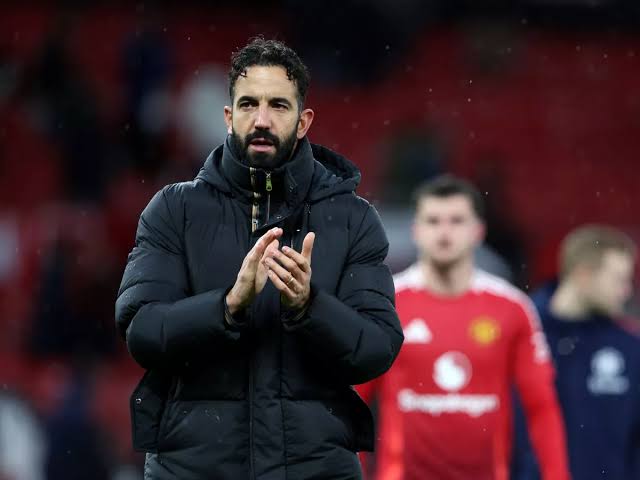Manchester United secured a resounding 3-0 victory against Athletic Club in the first leg of their Europa League semi-final clash, a result that has placed them firmly in the driver’s seat for a spot in the final. The match, played at Athletic Club’s formidable San Mames stadium, saw United overcome early pressure from the hosts to deliver a dominant performance, particularly after gaining a numerical advantage. Despite the impressive scoreline, manager Ruben Amorim stressed the importance of remaining focused and avoiding complacency ahead of the second leg at Old Trafford. He acknowledged the unexpected nature of the victory, emphasizing that the tie is far from over and that a similar outcome could unfold in the return fixture.
The first leg unfolded in two distinct phases. Initially, Athletic Club exerted significant pressure on United, creating several opportunities to take the lead. However, the tide turned dramatically when Casemiro headed in the opening goal. Shortly after, Athletic Club’s Dani Vivian conceded a penalty and received a red card for pulling back Rasmus Hojlund, leaving the hosts with a mountain to climb. United capitalized on the man advantage, scoring two more goals before halftime to build what appeared to be an insurmountable lead. Despite their dominance, they faced criticism for not capitalizing on further opportunities to extend their advantage and effectively kill off the tie.
While the 3-0 victory puts United in a commanding position, Amorim’s cautious approach reflects the unpredictable nature of football. He highlighted the initial struggles his team faced against Athletic Club’s early onslaught, underscoring how a different game could have unfolded had the hosts taken their chances. The manager’s words serve as a reminder that football matches can swing on fine margins and that complacency can be a dangerous pitfall, especially in European competitions known for their dramatic turnarounds.
The manager’s caution is also rooted in the stark contrast between United’s European and domestic performances. While they remain unbeaten in Europe this season, their Premier League campaign has been marred by inconsistency and a significant number of losses. Amorim attributed this disparity to several factors, including the challenges of managing a squad across multiple competitions, dealing with injuries, and the psychological toll of navigating a demanding schedule. He acknowledged that players can sometimes find it difficult to maintain consistent performance levels across different competitions, particularly when faced with the physical and mental demands of a packed fixture list.
Amorim’s emphasis on maintaining focus and avoiding complacency is underpinned by the statistical improbability of a team overturning a three-goal deficit in a European knockout tie. Historically, teams winning the first leg away by three goals have progressed to the next round in every recorded instance. However, Amorim refuses to rely on historical precedent, emphasizing the importance of approaching the second leg with the same intensity and determination as the first. He understands that statistics offer no guarantee of success and that his team must remain vigilant against any potential slip-ups.
The second leg at Old Trafford presents both an opportunity and a challenge for Manchester United. The opportunity lies in securing their place in the Europa League final and potentially ending the season with a major trophy. The challenge lies in maintaining their focus and avoiding the trap of complacency that can arise from a comfortable first-leg lead. Amorim’s message to his players is clear: the tie is not over, and they must approach the second leg with the same intensity and determination that brought them success in the first. Only then can they ensure their place in the final and capitalize on the significant advantage they have earned.














